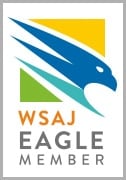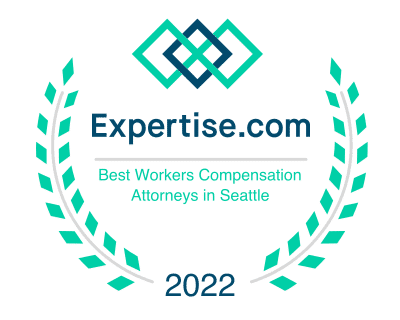Trenching and Excavation Cave-Ins
If you or a loved one suffered injuries in a trench digging and collapsing accident, you may be able to recover compensation for your injuries from the company responsible for the collapse. That is especially true if a third party failed to abide by applicable laws and regulations, resulting in injuries or death to a construction worker.
Trenching and Excavation is Dangerous Work
One cubic yard of soil weighs as much as 3,000 pounds (the weight of a car or small truck). The sheer mass of soil in a collapse often results in severe injury or death.
If a worker survives a trench collapse, injuries often cause life-altering permanent disabilities. Trenching accidents cause serious injuries such as:
- Crush injuries to soft tissue and bones
- Suffocation from collapsing soil
- Asphyxiation from improper ventilation
- Drowning in a water-filled trench
- Electrocution through contact with underground utilities
- Brain injury from toxic fumes in a confined space
Problems with Digging Dirt
Excavation is one of the most dangerous construction activities. A trench collapse on a worker causes serious injuries and is often fatal. Trench digging injuries occur to workers in many ways.
- Trench collapse burying a worker
- Worker struck by heavy equipment while in a trench
- Worker falling into an unmarked trench
- Worker struck by objects falling into the trench
- Worker electrocution from underground utilities
- Worker injured by excavation-related explosions
- Worker injured when trying to rescue a fellow worker
Liability for Trench Digging Accidents
State and Federal Laws Control Construction Work
Trenching accidents are preventable when applicable federal and state safety regulations are followed. Here is where to find the rules. Core safety rules are at WAC 296-800. Washington State excavation operations are directed by L&I’s Occupational Safety and Health division. DD27.30 summarizes the regulations.
Trenching regulations require specific measures to prevent collapses in WAC 296-155-657(2)(a), including:
- Sloping or benching trench walls
- Shoring trench walls with supports
- Shielding trench walls with trench boxes
- Providing supervision by a competent person
Who is Responsible for Trenching Accidents? Who will Pay?
When the safety methods required by law are not followed, someone may be liable. But how do you know which company or person to sue?
By the nature of construction, multiple people and companies are involved in a project, including trench digging and other excavation activities.
- Jobsite Employer
- Agency Employer
- General contractor and their employees
- Subcontractors and their employees
- Equipment suppliers and operators
- Land Owners
- Registered Professional Engineers
What are the Major Safety Rules that Help Determine Fault?
Employers, general contractors and subcontractors and their employees are required to provide workers with a safe work site and to abide by WISHA regulations requiring use of protective systems to prevent collapse. Failure to comply with the regulations can impose liability. The regulations address a wide range of preventive measures for employers, contractors, and subcontractors. Some of the regulations are set out below.
- Using adequate protective and prevention methods
- Providing prompt response after a cave-in, WAC 296-155-035(9)
- Designating a competent person to assess, inspect for, and correct hazards, WAC 296-155-800
- Implementing a written safety and health accident prevention program (APP) with excavation policies, WAC 296-155-110 (2)
- Providing training to employees, WAC 296-155-100 (1)(c)
- Providing necessary personal protective equipment (PPE), WAC 296-155-160 & WAC 296-800
- Having utilities located and marked
- Inspecting equipment and machinery
- Providing safe access and egress, WAC 296-155-655
- Addressing confined space concerns, WAC 296-809
Determining the cause and person(s) responsible for a trench collapse or other trenching injuries requires substantial investigation and analysis. Assistance from an attorney experienced in trench collapses can make a difference in your case. Meet Attorney Christopher Sharpe.
What Causes Trench Collapse and Cave-Ins?
Failure to follow OSHA and WISHA rules protecting workers. Here are some of the protective rules excavators need to follow:
- Slope the edges of the trench for stability.
- Cut a trench in stepped and benched grades.
- The walls of the trench should be supported by a system of posts, beams, shores, or planking and hydraulic jacks.
- A trench box can be provided to shield and protect workers.
- All materials and equipment should be kept a minimum of 2 feet back from the trench.
- A safe way to exit a trench should be provided within 25 feet of workers.
- When conditions change, a competent person must inspect trenches.
Legal Claims Available to You for Trenching and Digging Injuries. L&I and THIRD PARTY CLAIMS.
L&I CLAIM
L&I Claims are no fault. You don’t have to prove fault to file a successful L&I claim. If you are hurt on the job, see a doctor and file a claim.
L&I claims come in two different varieties, injuries and occupational diseases. The L&I claims resulting from trenching accidents frequently are severe and have lifelong consequences. Loss of limbs and permanent disability are common.
- Injuries occur when the effects of an accident are immediate. Fall into a trench and break your arm, and you have an injury L&I claim.
- Occupational Diseases are less sudden and manifest themselves over time. Jack hammering and vibrating equipment cause physical problems over time. Toxic fumes cause problems which appear over time. These are examples of an occupational disease L&I claim.
L&I Benefits
If there is a serious injury, occupational disease, or death on the job, there will be L&I benefits which may include:
- Pension
- Time Loss
- Medical treatment
- Disability settlements
- Job training
THIRD PARTY CLAIMS
- What is a Third Party Claim? A third party claim is on the job or occupational disease that creates two claims.
- If a third parties’ negligence causes a job injury or death, then there may be two claims, the L&I claim and a third-party personal injury claim.
How Do I Know if I Have a Third-Party Claim?
- If your L&I injury or occupational disease was caused by someone not your employer or co-employee, or if you were hired through a temporary agency, you may have a third-party claim.
Are Third Party Claims Like L&I Claims?
- No, The proof requirement is very different. Only the facts are the same. Someone needs to be at fault and you need to prove it to win a third party claim.
- Claim Remedies are also different. You can recover more benefits with a third party claim then with an L&I claim. If you have both L&I and Third Party Claims, it is advantageous to recover under both claims
Who are these third-parties?
Third-parties are persons or companies that caused your injury on the job. If they are not your employer and are not your co-worker, then they are a third party. Third parties also include manufacturers or products that caused you injury.
What is a third party claim worth?
A third party claim with good liability is worth the the damages that you prove. Excavation accident and trench cave in accident damages include:
- Medical and hospital expenses
- Pain and suffering
- Future medical treatment and care
- Lost wages
- Loss of future earning capacity
- Permanent injury or disability
WISHA Safety Standards
There are important safety standards that apply to trenching. They can help you prove your claim and improve the value of your claim. Consider enlisting their support to help you prove your third party claim.
Criminal Liability
Trenching accidents are preventable. In addition to L&I claims and third party claims, criminal liability is possible.
Construction company owners can face criminal prosecution and jail time for their blatant disregard of safety if it results in the death of a worker. Jail Time For Company Owner
Wrongful Death
If a family member died from a trenching accident, the compensation in a wrongful death third party action is different than what can be recovered in a straight L&I injury claim. These third party cases include damages for the estate and for beneficiaries as determined by state law. In every case the trier of fact may give such damages as, under all circumstances of the case, may to them seem just.
The estate can recover for:
- Funeral and burial expenses
- Medical and hospital costs
- Pain and suffering, anxiety, emotional distress, or humiliation prior to death
- Lost net income
Beneficiaries in a wrongful death action recover for:
- Lost future financial support
- Lost companionship and care
- The beneficiary’s own pain and suffering
- Widows L&I pension with an on the job death of a spouse
- Beneficiaries L&I pension benefits with an on the job death of the person who supported them.
Who is a Wrongful Death Beneficiary?
Beneficiaries include spouse, state registered domestic partner, children, brothers and sisters, and parents, if they relied on the deceased for support. RCW 4.20.020. If there is no such beneficiary than parents or siblings of the deceased can maintain an action.
Who Pays for Trench and Cave-In Accidents?
- The circumstances of the accident will determine who pays.
- L&I is the usual first payer for job injuries. They pay L&I benefits for L&I claims on a no fault basis.
- If you have a Third Party Claim the insurance companies for the third party pay for the damages that you can prove. If you have a third party claim then get a good lawyer. Third party recovery may be offset by an L&I or Self Insurer third party lien.
How to Win a Third Party Claim
Making the determination of who is responsible to pay for injuries, trench cave-in deaths, or cave-in third party claim requires complex analysis of:
- the accident circumstances
- a complete understanding of the legal relationship of the parties to each other
- analysis of the applicable federal and state laws and regulations.
You will benefit from a smart and experienced trench accident attorney to help you make that analysis.
Regardless of who may be legally liable, there will be insurance companies involved. They are likely to be big insurance companies with plenty of resources, including seasoned trench accident lawyers in WA State. There often is more than one insurance company. Want to win your third party claim? Hire your own lawyer, and get a good one.
What to Do If You’re Injured in a Trench Digging Accident
- Get Medical Care If you suffer injuries in a trenching accident, the first and most important thing to do immediately is get proper medical attention. That includes getting a full medical evaluation of the extent of your injuries, some of which may not be immediately apparent, such as brain injuries.
- Manage Your L&I Claim Take care of your L&I claim and it can take care of you. Make smart decisions. Get your benefits. Get well soon and get legal advice if you need it.
- Carefully Consider a Third Party Claim Third party claims can be worth a lot of money. Know what you are doing and make good decisions. This could be one of the most important decisions you will ever make. This is where you will want a good legal mind helping you. You need to know if you have a good third party claim and how best to prove it.
If you are lucky enough to have a good third party claim then get it right. The best time to start collecting evidence relating to the accident is immediately after it occurs. As time passes, evidence and witnesses can disappear or become hard to locate. Don’t wait. Construction projects involve a lot of workers who will not be on the site permanently. Finding anyone and everyone who saw the accident happen is critical.
While you recover, let your lawyer do all the work to prepare your case. If you have or will get a lawyer, then do not talk with insurance companies that contact you. Their main interest at the beginning of a claim is to get you to say things that can hurt your case. Don’t let that happen.
Here is what needs to be done with a third party claim:
- Identify witnesses and the companies that may be responsible.
- Every aspect of the trenching operation should be analyzed.
- Applicable regulations should be identified, both in the RCWs and the WACs.
- All the facts must be evaluated to find violations of those regulations.
- Detailed information about your injuries will be obtained and reviewed.
- The full amount of a fair settlement should be calculated and demanded .
Your trench accident lawyer will do all that work and more, while you focus on getting better. Sound like a smart plan? Let’s talk about your chances of success.










